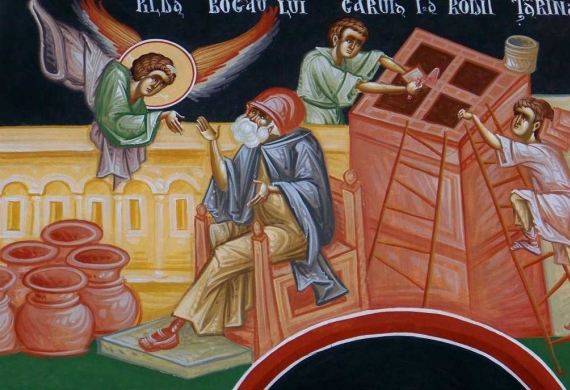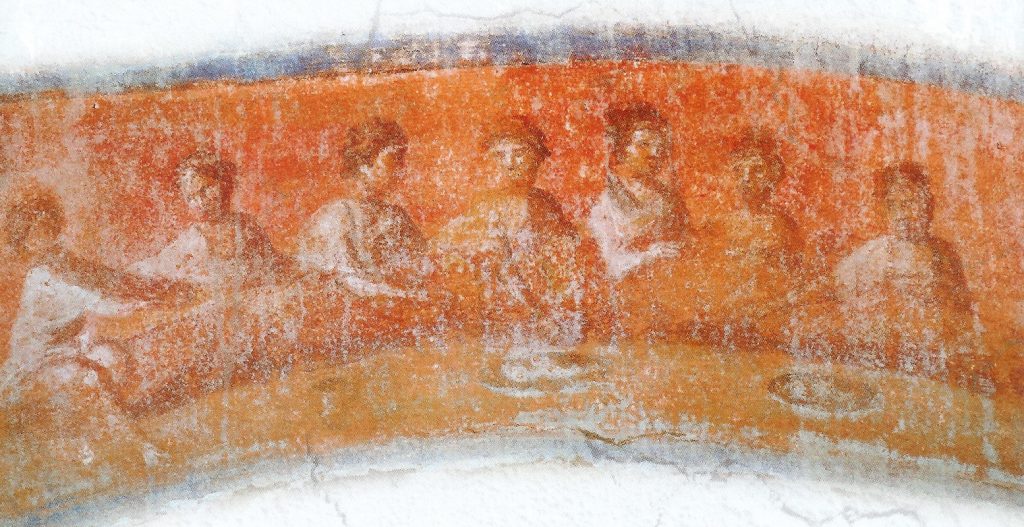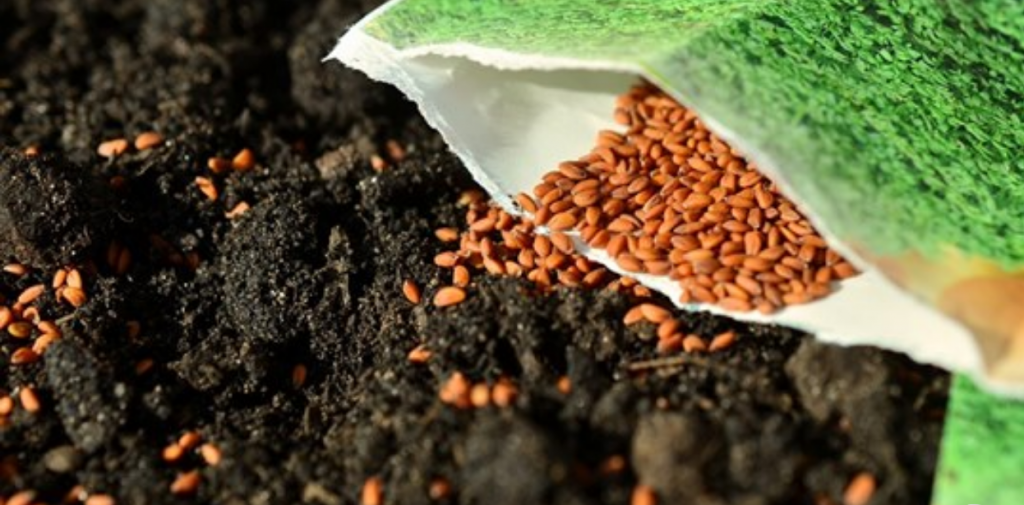“I want my house to be full,” says the host of the banquet (Luke 14:23). I hear that. I want our house to be full.
Most people these days call the buildings in which we gather to worship God “churches.” Many people of our particular Church, particularly in the old countries, actually call them “temples,” not “churches.” The Church is the people of God gathered together to worship God. The temple is the place of sacrifice to the Lord. But in the ancient church, it’s interesting to note, the building in which we gather would have been called neither a church nor a temple.
The church, as I say, is the people of God gathered together to worship God, and not the building in which we worship him. As for the temple, there was only ever one building that was a temple – the temple that the Lord commanded be built in Jerusalem. That temple has not been replaced by these buildings in which we worship God, it has been fulfilled by our bodies. Our bodies are the temples of the Holy Spirit (1 Cor 6:19). We now worship God in spirit and in truth. Our bodies are for worshipping God. The Lord dwells in our bodies through the holy mysteries of the Church. Through the Eucharist especially, he comes to dwell inside of us – in our hearts. When we receive communion, our heart becomes the tabernacle of the Lord in the temple of the Lord.
So, if these buildings would have been called neither church nor temple, what would they have been called? – houses (οἶκοι). Christians first gathered in houses. This term is retained in our liturgy. Every time you hear the deacon praying “for this holy church and for all who enter it with faith, reverence, and the fear of God,” the original Greek word translated as “church” actually is οἶκος – house. The house of the Church. The house of the people of God gathered together to worship the Lord. And, I want the house to be full. The Lord talks about a house today and he says he wants it to be full.
By way of filling it, are we doing what Jesus tells us to do? Are we bringing in the poor and needy to share in our banquet? Or, do we think it’s for us but not for them? As we go about our lives, are we cajoling all we meet to join us and fill the house?
I want the house to be full. Don’t you? And I don’t care about it being full of money or full of people with money. I want it to be full of God’s people. All people. People in need. Also, the blind, the crippled, the lame, and the poor, says Jesus Christ himself (Luke 14:21). Are we doing everything we can to invite them? And to make our houses accessible to them – to the Church, which is the people, so that they can join us in the worship of almighty God? Are we offering to give them a ride? Are there people who want to come but can’t?
What could be more important than filling the house of the Lord with many to share in in his banquet? It doesn’t matter how much that costs. Let’s do all we’re able to toward that end.
The banquet in Jesus parable to us today is, of course, the heavenly banquet. But if it’s less clear, it’s also the banquet we celebrate at every Divine Liturgy. The Eucharistic banquet in which we participate is the heavenly banquet. There is no difference. It is the same banquet. The one that goes on in our houses is the same one going on in heaven. There’s a reason we call the liturgy Divine. It is an act of God. God is present there.
If you listen to the prayers of the Divine Liturgy, you’ll see that God himself has broken into our ordinary time and our ordinary life. He abolishes our earthly anxieties, if we let him. In the house of the Church, we occupy the time when the Lord has already come. The second coming is an accomplished act. It’s not only something we’re waiting for the future. The future is now. The past is now. We are present in Bethlehem at the birth of our Lord Jesus Christ in a stable in a cave in Bethlehem. We’re present also at his baptism in the River Jordan. And we’re present at the foot of his cross. And by his tomb. We’re present as he rises up out of the tomb. We’re present as he ascends again to the right hand of his Father in heaven. We’re present as the Holy Spirit descends upon us with his apostles. Here. Now. Today. We’re present as he comes again in glory. The Divine Liturgy is the heavenly banquet. It is not a rehearsal. It is not a drill. It is the one and only heavenly banquet.
So, do you ever make excuses as to why you cannot come? Let’s listen to Jesus’ parable about such excuses (Luke 14:16-21). He’s not buying it.
The ideal for us for Sundays and Great Feasts is to come and pray Vespers, Matins, and Divine Liturgy. “Evening, morning, and at noon, I will pray,” says the Psalmist (55:17). But we understand that circumstances make this difficult for most of us and impossible for some of us. So, if you can’t come to one, come to another. If you can’t come Sunday morning, come to Vespers Saturday evening. Participate to the extent you’re able. God sees the heart. He knows how legitimate your excuses are. Unlike us, he is a host who really knows those he has invited.
He knows also whether we doing what we can to bring others to the Lord. This is his command to us, remember. According to some research,[1] 82% of the unchurched say they would consider attending church if they were invited. At the same time, only 2% of people who go to church have invited a friend in the last year. As a result, seven out of ten unchurched people have lived their entire lives without ever having been invited to church by a friend.
The host in today’s parable instructs that we not only invite people to this banquet, but that we compel them to come in (Luke 14:23). Let’s invite and go beyond inviting. Let’s offer somebody a ride. Or, let’s offer to meet them at the church and show them around or walk in with them and sit with them. Make them comfortable. Answer their questions.

I also learned that not very many people come to church because they saw or heard an advertisement. That doesn’t mean we shouldn’t advertise. Even if only one person comes as a result, it’s worth spending quite a lot of money on advertising for the sake of that one person. We should advertise. But still it remains the case, that not a lot of people come to church because they saw an advertisement.
Also, perhaps more surprisingly to some, not a lot of people come to church because the pastor of that church invites them. That doesn’t mean I shouldn’t invite people. I should, I can, and I do. And it’s worth it. If only one person comes out of a thousand I invite, it’s worth inviting the thousand for the sake of the one. But still it’s the case that not a lot of people come to church because they’re invited by the pastor.
You know why most people actually come and join the church? It’s because they’re invited by a friend. This makes sense. Even Peter only came and saw Jesus because his brother invited him. Nathanael only came and saw Jesus because his friend Philip invited him (John 1:40-51).
What works is inviting our family and our friends again and again – people who know that we love them. That’s the key that makes all the difference in evangelization – love. If our house isn’t built out of love, then what is it built out of? If it’s built of something other than love, then we should certainly stop calling it a church.
[1] Thom S. Rainer, The Unchurched Next Door


















